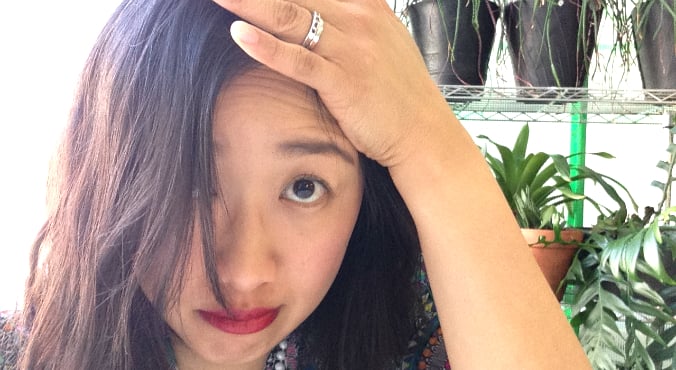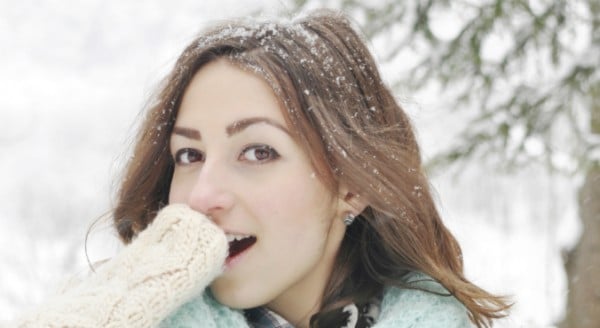
Do you also get sad about your scalp flakes? (Source: Supplied.)
Nothing kills a good hair day like dandruff. The telltale itchy scalp and the pesky white flakes can really squish a girl’s confidence. How do I know this? It’s because I have it!
I once cried because my dandruff was getting so bad. When you’ve got black hair, there’s little you can do to disguise the flaky, scalp-snow! So I turned to Rebecca Coffey from LHD Organic Hair for her expert advice on how to treat this often misunderstood hair issue.
What causes dandruff?
The top layer of our skin is in a constant state of renewal, which means that we shed skin cells. We don’t usually notice this happening, as the skin cells are shed one at a time, and they’re teeny-tiny.
However, if the scalp is inflamed and scaly, then the skin cells clump together, forming noticeable, larger flakes. And voila! We have dandruff flakes.
Related: Why argan oil is in everything from hair to skincare products right now.
Why do I always seem to get dandruff in winter?
Consider this: you may not actually have dandruff, but bad hair habits instead. Oops… guilty as charged.
“Dandruff is commonly misdiagnosed,” explains Rebecca. “During the colder months, you have hotter showers and burn your scalp. If it’s only during winter, it’s not dandruff.”
“What we find at LHD is most commonly, it’s a build-up of silicone. Silicone is an ingredient in most cheap hair products to smooth, weigh down frizz and add shine,” suggests Rebecca. (Post continues after gallery.)
The best hairbrushes to try
How can I treat my dandruff?
Hold up: make sure it really is dandruff, and not just dry scalp, before you do anything. The best person to consult is your doctor, but a hairstylist can help initially.
